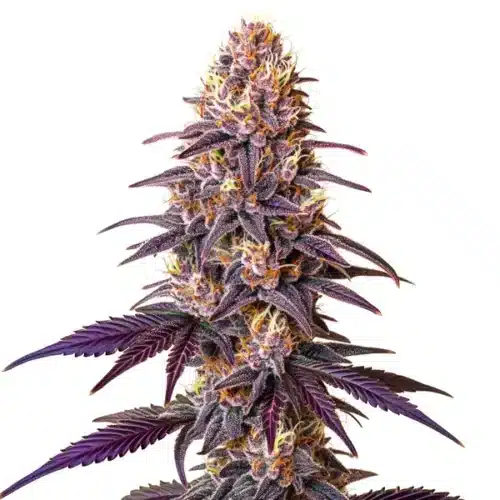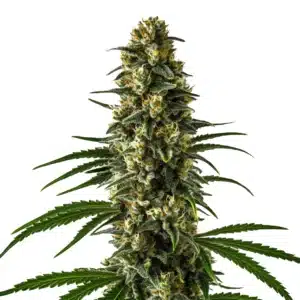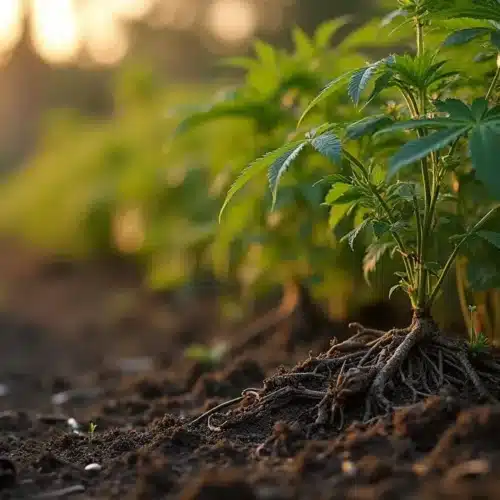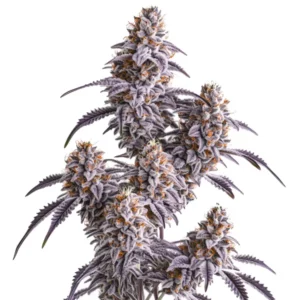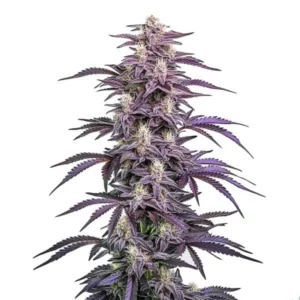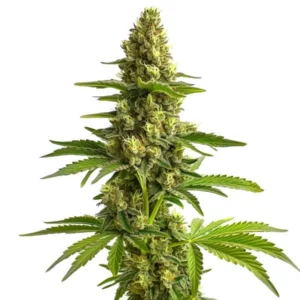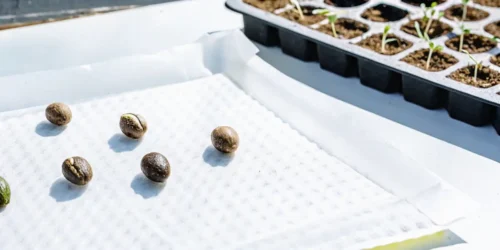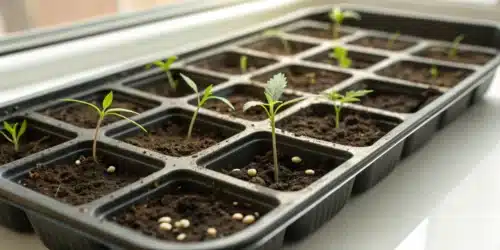The moment has arrived for your cannabis seeds from Blimburn Seeds to land in your mailbox. Regardless of your ultimate goal, one thing is certain: everything begins with a seed, and germinating that start seeds in rockwool
Soil isn’t everyone’s preference, and with an increasing number of growers venturing into hydroponics, why not consider starting seeds in rockwool, coco coir, or peat?
Recommended Strains
Lavender
 THC: 20%
THC: 20% Type of seed: Feminized
Type of seed: Feminized Phenotype: Mostly Indica
Phenotype: Mostly Indica Day to flower: 8 - 10 weeks
Day to flower: 8 - 10 weeks
Gelato Auto
 THC: 19% - 21%
THC: 19% - 21% Type of seed: Autoflowering
Type of seed: Autoflowering Phenotype: Mostly Sativa
Phenotype: Mostly Sativa Day to flower: 8 - 10 weeks
Day to flower: 8 - 10 weeks
What is rockwool?
Rockwool, also known as Stonewool, is one of the top soilless growing mediums to start seeds in rockwool, particularly for cannabis plants in hydroponic setups. Spun from molten volcanic rock, Rockwool has a fibrous structure similar to fiberglass. This composition provides excellent water retention while maintaining aeration, promoting robust root and plant growth. It is also sturdy, sterile, and lightweight, making it ideal for supporting cannabis plants.
Despite competition from other soilless mediums such as coco coir, floral foam, clay pebbles, perlite, and gravel, Rockwool remains a preferred choice due to its superior properties. However, it’s important to note that Rockwool has a naturally high pH, requiring preparation before use.
Rockwool is widely available and affordable, found in most gardening and hydroponics stores in various shapes and sizes, including cubes, chunks, and slabs. Ensure that the Rockwool you purchase is hydroponic-grade to achieve the best results for starting seeds.
Promos & Deals
Benefit of use rockwool to grow cannabis
We have already touched on some benefits of rockwool, but let’s delve deeper. Here are the primary advantages of using rockwool for starting seeds in rockwool, particularly when growing cannabis hydroponically.
Superior Drainage and Aeration
One of rockwool’s key benefits is its excellent drainage capabilities. Even when soaked, its fibers allow water to drain efficiently, preventing overwatering—a common mistake that can drown roots and cause fungal issues. Rockwool’s structure also ensures ample air pockets, promoting oxygen availability to the roots, which is crucial for nutrient uptake and root respiration.
Exceptional Water Retention
Rockwool excels in water retention due to its fibrous structure, which creates a network of small pores that hold water evenly. This ensures a consistent moisture supply to the roots, reducing the frequency of watering. These qualities make it an ideal medium to start seeds in rockwool, as it helps maintain consistent moisture levels, crucial for plant health and growth.
Extended Watering Intervals
Because of its ability to retain water, rockwool allows for longer intervals between watering sessions. Unlike soil, which can dry out quickly, rockwool provides extended moisture availability, making it perfect for scenarios where frequent watering isn’t possible. This reduces the effort and time spent on watering while keeping the plants adequately hydrated.
Effective Nutrient Distribution
Rockwool’s water retention also aids in the efficient distribution of nutrients throughout the root zone. When nutrients are applied, they disperse evenly, ensuring that roots have consistent access to essential elements. This helps prevent nutrient deficiencies or toxicities, promoting healthy growth and optimal plant health.
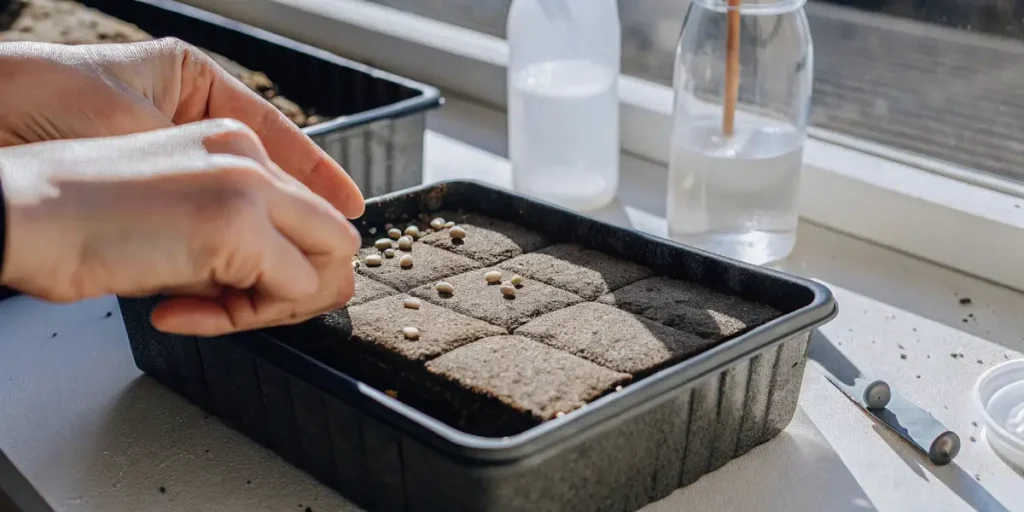
Ideal for Germinating Seeds
Rockwool is perfect for germinating cannabis seeds, providing the essential elements of warmth, darkness, and moisture needed for sprouting. Once saturated, rockwool cubes offer an ideal environment for seeds to begin their growth journey.
Ease of Root Expansion
Unlike compacted or hard growing mediums, starting seeds in rockwool takes advantage of its fibrous nature, which allows roots to expand freely. This prevents issues related to root constriction, promoting healthy root development and vigorous plant growth.
Simple Transplantation
Transplanting seedlings from rockwool is straightforward and clean. Unlike soil, which can be messy, rockwool cubes can be easily moved to a new container without disturbing the plant, ensuring a smooth transition for continued growth.
Sterility and Microbial Protection
Rockwool is completely sterile due to its inorganic nature and high-temperature production process. This sterility protects plant roots from harmful microbes, supporting a healthy growing environment.
Compostable
Although rockwool decomposes slowly, it can be shredded and added to compost. Over time, the basalt rock minerals will break down, enhancing the compost with additional nutrients.
Using rockwool for starting seeds, especially in hydroponic cannabis cultivation, offers numerous advantages, from excellent drainage and water retention to easy transplantation and nutrient distribution.
Why Germinate Cannabis Seeds in Rockwool Cubes?
If you aim to cultivate cannabis in a hydroponic setup, one of the best methods is to start seeds in Rockwool cubes. Growing an autoflower in rockwool is particularly effective, as Rockwool—also known as stone wool or mineral wool—is an inert medium ideal for hydroponic growing due to its high absorbency and ease of use.
Rockwool’s absorbent nature makes it perfect for retaining moisture, providing a stable environment for seed germination. Additionally, hydro-specific Rockwool products allow for seamless transplantation of seedlings without damaging their roots. Seeds germinated in a Rockwool cube can be easily transferred into a larger Rockwool block, facilitating uninterrupted root growth.
The popularity of Rockwool in hydroponics stems from its versatility, reliability, and ease of use. However, there are two notable downsides. First, the production and disposal of Rockwool are not environmentally friendly, as it does not biodegrade. Second, Rockwool’s natural pH is around 7.0, which is too alkaline for cannabis, hindering nutrient uptake. To counter this, soak Rockwool in a pH 4.5 solution for about 15 seconds before use. If this is a concern, you can start in Rockwool and later transplant to another hydroponic medium.
The primary advantage of germinating seeds in Rockwool is the ease of transplantation and its suitability for hydroponic systems. While it is possible to transplant Rockwool-started seedlings into soil, it’s generally more practical to start in soil if that’s your intended growing medium. Nonetheless, this method is effective for both hydroponic and soil growing.
By choosing to germinate cannabis seeds in Rockwool cubes, you ensure a smooth transition for your plants, particularly in hydroponic setups, optimizing their growth and health from the very beginning.
How to Germinate Cannabis Seeds in Rockwool Cubes
Germinating cannabis seeds in Rockwool cubes is a straightforward process, but it requires careful attention to detail. For growers looking to start seeds in Rockwool, hydroponic setups demand precise management because fluctuations can significantly impact plant growth compared to soil cultivation.
Equipment Needed
- Rockwool germination blocks.
- Rooting stimulant.
- Propagation chamber/humidity dome.
- Heat source.
- Tweezers.
- pH-down solution (optional).
- Skewer (optional).
Instructions
- Adjust pH of Rockwool Cubes: If your Rockwool cubes are not pre-adjusted to the correct pH, soak them in a pH solution of approximately 4.5–5.0 for about 15 seconds. This will lower the pH of the blocks to around 5.5.
- Soak in Rooting Solution: Submerge your cubes in a rooting stimulant and nutrient solution suitable for cannabis. Ensure this solution has a pH of 5.5 and use minimal nutrients. The rooting solution helps the seedlings to grow robustly after the taproot appears.
- Set Up in Propagation Chamber: Place your Rockwool blocks in a propagation chamber or tray.
- Plant the Seeds: Using clean tweezers, place your cannabis seeds into the holes in the germination cubes. Push them gently to the bottom. If the cubes don’t have pre-made holes, create holes about ¾ of the way through the center of each block using a skewer or similar tool.
- Maintain Temperature and Humidity: Cover your propagation chamber with a lid or dome and place it in a warm location. Maintain a temperature between 22ºC to 25ºC and a relative humidity of 70–90%. Using a heat mat under the tray or an ambient heater helps to sustain these conditions. Ensure the surrounding environment is also warm, even with a heat mat.
- Wait for Germination: Seeds should germinate within 1–21 days, typically within a few days if conditions are optimal.
- Prepare for Seedling Growth: While light is not needed for germination, seedlings will require light as soon as they emerge. Have suitable lighting, such as CFL or LED lights, ready in advance.
By following these steps, you can successfully germinate cannabis seeds in Rockwool cubes, setting the stage for healthy and vigorous plant growth.
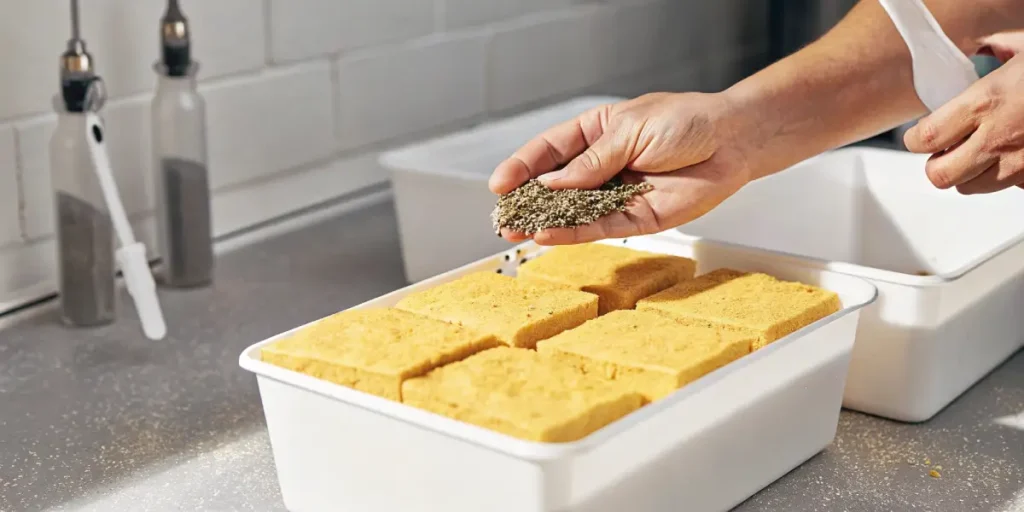
Germinate Clone Cuttings with Rockwool
To start seeds in rockwool and successfully clone cannabis, rockwool proves to be an excellent cloning medium. Follow these steps:
- Select your preferred method to take cuttings from the mother cannabis plant.
- Dip the cut end of the cutting into rooting hormone.
- Create a suitable hole in the rockwool cube and gently insert the cutting into the hole.
- Place the cutting on a tray, cover it, and optionally spray the tray with water to boost humidity at the base. Set up grow lights with an 18/6 light cycle.
Your clones will germinate soon.
When to Transplant Rockwool Seedlings
Start seeds in Rockwool for an excellent method of germinating cannabis. However, knowing when to transplant Rockwool seedlings is crucial for optimal growth. The best time to transplant is when the seedlings have developed two true sets of leaves and/or when roots start to emerge from the bottom of the Rockwool cube. This visibility of root growth is one of the many advantages when you start seeds in Rockwool.
After this stage, you’ll need to move the seedlings to a larger medium. This new medium could be more Rockwool, coco coir, clay pebbles, a vermiculite/perlite mix, or even soil. Each option has its own benefits and challenges.
Growing cannabis in inert media like Rockwool demands more care and attention than soil-based growing. However, the rewards can be significant for those willing to invest the time and effort to master this technique. Good luck with your growing journey!
FAQs about start seeds in rockwool
How do I prepare Rockwool cubes for cannabis seed germination?
To prepare Rockwool cubes, first soak them in water with a pH of 5.5 for about 30 minutes to balance their natural alkalinity. After soaking, gently squeeze out excess water to achieve a moist, but not waterlogged, state. This creates an optimal environment for seed germination, ensuring the cubes provide the necessary moisture and aeration for the developing seeds.
What are the advantages of using Rockwool cubes for starting cannabis seeds?
Rockwool cubes offer excellent water retention and aeration, providing a consistent moisture supply while allowing sufficient oxygen to reach the roots. They are sterile and pH-neutral after proper preparation, reducing the risk of pathogens and nutrient imbalances. Additionally, Rockwool’s structure supports easy root expansion and simplifies transplantation into various growing systems.
How should I care for cannabis seedlings in Rockwool cubes after germination?
Maintain a stable environment with temperatures between 70-80°F (21-27°C) and humidity levels around 70-80%. Keep the Rockwool cubes moist but not saturated, watering only when they begin to feel lighter or slightly dry on top. Provide gentle, indirect light to encourage healthy growth, and monitor the seedlings for signs of overwatering or nutrient deficiencies.

